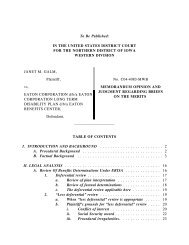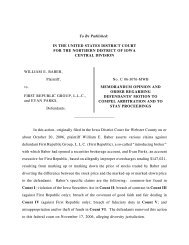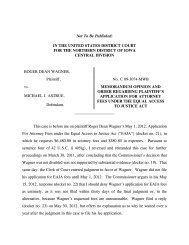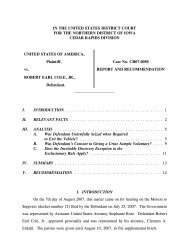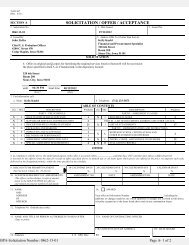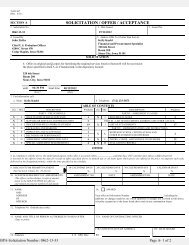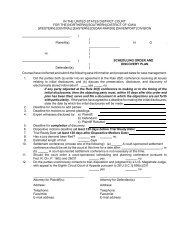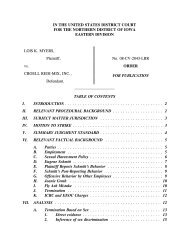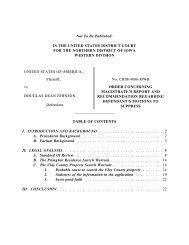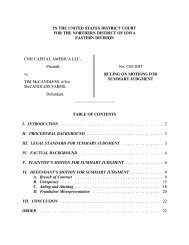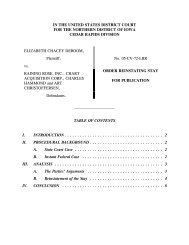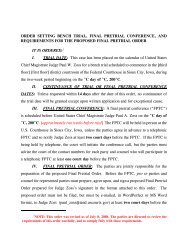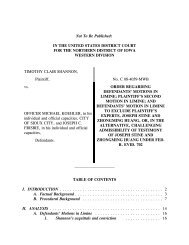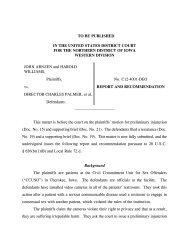IN THE UNITED STATES DISTRICT COURT FOR THE NORTHERN ...
IN THE UNITED STATES DISTRICT COURT FOR THE NORTHERN ...
IN THE UNITED STATES DISTRICT COURT FOR THE NORTHERN ...
Create successful ePaper yourself
Turn your PDF publications into a flip-book with our unique Google optimized e-Paper software.
vague state of the statutes and regulations at issue in the Motions. Bouchey’s Supplement<br />
at 4. Bouchey states: “[b]ecause no laws or regulation prohibited the defendant’s conduct<br />
in 2003, as evidenced by [Devine]’s testimony, the instant prosecution violates the due<br />
process clause of the United States Constitution.” Id. at 5. However, active state and<br />
federal regulations governed the moving defendants’ activities at the time Ms. Devine<br />
investigated Union Family. Although these regulations were not specifically targeted<br />
toward Internet pharmacies, they nevertheless regulated the moving defendants’ conduct.<br />
As discussed above, these federal regulations required a physician or pharmacist to issue<br />
prescriptions “for a legitimate medical purpose” by a practitioner “in the usual course of<br />
his professional practice.” See 21 C.F.R. § 1306.04(a). The court has already found<br />
these regulations sufficient to put the moving defendants on notice of the proscribed<br />
conduct at issue. Additionally, the Iowa Administrative Code provided parallel governance<br />
on these issues. See Iowa Admin. Code r.657-8.19(4) (2008) (stating a “pharmacist shall<br />
ensure the prescription drug [. . .] has been issued for a legitimate medical purpose by an<br />
authorized practitioner acting in the usual course of the practitioner’s professional<br />
practice”). The fact Ms. Devine did not raise these issues does not render the CSA<br />
unconstitutional as applied to the moving defendants.<br />
I. Subjective Standard Or Objective Standard<br />
Finally, in Kanner’s Reply to Government’s Omnibus Resistance to Defendant’s<br />
[sic] Motion to Dismiss Indictment (Kanner’s Reply) (docket no. 237), Bouchey argues<br />
§ 1306.04(a) should apply a subjective standard rather than an objective standard to<br />
determine whether a physician acted in “the usual course of his professional practice.”<br />
Bouchey argues the government’s failure to include the word “his” in reference to a<br />
physician’s “professional practice” in the government’s argument, Indictment and other<br />
proceedings means the Indictment fails to state a crime because it abrogates this subjective<br />
standard.<br />
25



